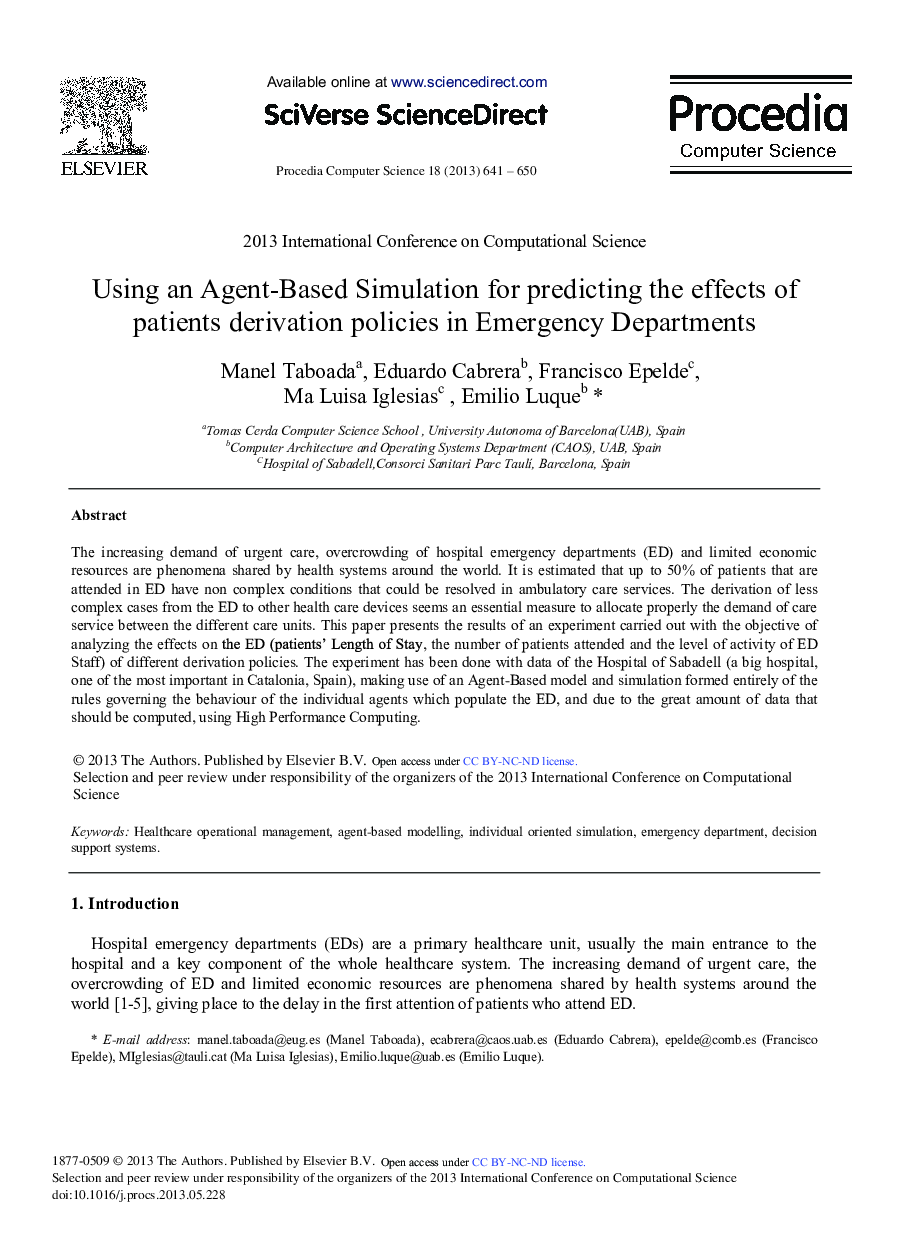| Article ID | Journal | Published Year | Pages | File Type |
|---|---|---|---|---|
| 490538 | Procedia Computer Science | 2013 | 10 Pages |
The increasing demand of urgent care, overcrowding of hospital emergency departments (ED) and limited economic resources are phenomena shared by health systems around the world. It is estimated that up to 50% of patients that are attended in ED have non complex conditions that could be resolved in ambulatory care services. The derivation of less complex cases from the ED to other health care devices seems an essential measure to allocate properly the demand of care service between the different care units. This paper presents the results of an experiment carried out with the objective of analyzing the effects on the ED (patients’ Length of Stay, the number of patients attended and the level of activity of ED Staff) of different derivation policies. The experiment has been done with data of the Hospital of Sabadell (a big hospital, one of the most important in Catalonia, Spain), making use of an Agent-Based model and simulation formed entirely of the rules governing the behaviour of the individual agents which populate the ED, and due to the great amount of data that should be computed, using High Performance Computing.
